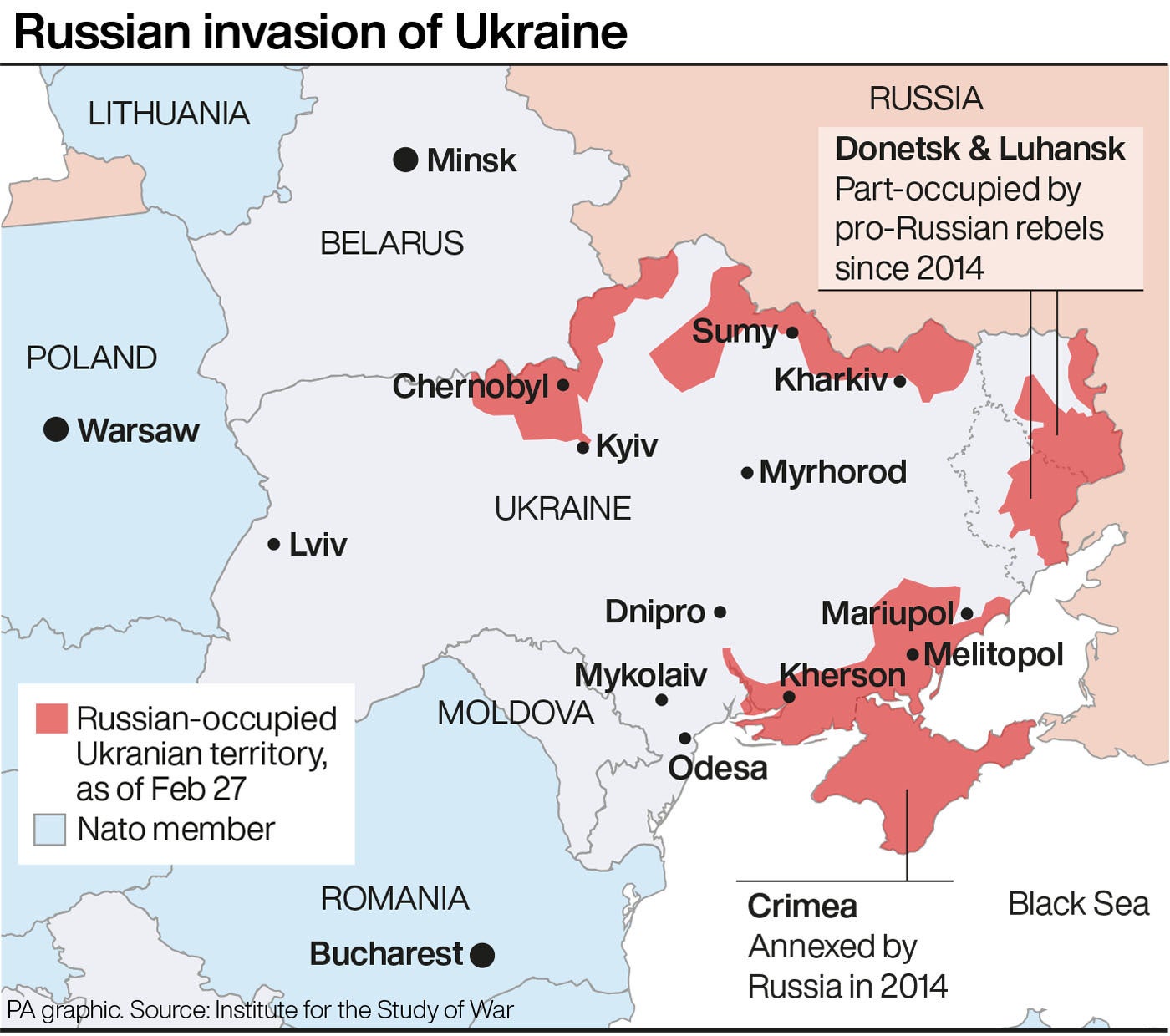Putin issued nuclear order in response to Liz Truss comments, Kremlin says
‘I will not name the authors of these statements, although it was the British foreign secretary’
Your support helps us to tell the story
From reproductive rights to climate change to Big Tech, The Independent is on the ground when the story is developing. Whether it's investigating the financials of Elon Musk's pro-Trump PAC or producing our latest documentary, 'The A Word', which shines a light on the American women fighting for reproductive rights, we know how important it is to parse out the facts from the messaging.
At such a critical moment in US history, we need reporters on the ground. Your donation allows us to keep sending journalists to speak to both sides of the story.
The Independent is trusted by Americans across the entire political spectrum. And unlike many other quality news outlets, we choose not to lock Americans out of our reporting and analysis with paywalls. We believe quality journalism should be available to everyone, paid for by those who can afford it.
Your support makes all the difference.Vladimir Putin put Russia’s nuclear deterrent forces on high alert in response to comments made by foreign secretary Liz Truss, the chief spokesperson for the Russian president has said.
Mr Putin’s command, issued on Sunday, significantly escalated the crisis over Russia’s invasion of Ukraine, raising the spectre of a worldwide nuclear conflict.
Today, his spokesperson Dmitry Peskov blamed “unacceptable” comments from Western politicians for prompting the move, and singled out Ms Truss.
“There were unacceptable statements about possible conflict situations and even confrontations and clashes between Nato and Russia,” said Mr Peskov.
“I will not name the authors of these statements, although it was the British foreign secretary.”
It appears that Mr Peskov may have been referring to comments in a Sunday morning TV interview, in which Ms Truss said that if Putin was not stopped in Ukraine it could lead to Nato being dragged into a wider conflict.
“If we don’t stop Putin in Ukraine we are going to see others under threat – the Baltics, Poland, Moldova, and it could end up in a conflict with Nato,” said the foreign secretary on Sunday.
“We do not want to go there. That is why it is so important we make the sacrifices now.”
An ally of the foreign secretary said that Mr Peskov was clearly attempting to distract attention from the difficulties Russian troops are facing.
“Nothing Liz has said warrants that sort of escalation,” said the ally. “It’s clearly designed to distract from the situation on the ground in Ukraine.”
They said that Ms Truss has always discussed Nato in the context of it being a defensive alliance, that she stands by Article 5 of the alliance’s treaty - which states an attack against one ally is an attack on all - and that “we must do everything we can to help Ukraine short of putting boots on the ground”.
The foreign secretary was backed by Scottish first minister Nicola Sturgeon, who said in a tweet: “Whatever political disagreements any of us have with Liz Truss - and I have many deep differences with her - we should not fall for this transparent Russian attempt to divert.
“The only person responsible for Putin’s despicable nuclear threat is Putin.”
Boris Johnson’s official spokesperson said: “It remains the case that the rhetoric we are seeing from Putin’s regime is designed to distract from the situation on the ground. That’s very much our focus.”
But No 10 effectively contradicted Ms Truss’s suggestion in her interview on Sunday that she would back Britons who travel to Ukraine to fight alongside the resistance.
“We think the best way we can help Ukraine right now is by ensuring Putin fails,” said the PM’s spokesperson in response to questions about Ms Truss’s remarks.
“We fully recognise the strength of feeling about British people wanting to support the Ukrainians following the Russian invasion. There’s advice up on travelling to Ukraine, we currently advise against travel to Ukraine.”
Ben Wallace, the defence secretary, has downplayed Russia’s move in relation to its nuclear arsenal, suggesting it does not fundamentally change the threat to the West.
“We don’t see or recognise, in the sort of phrase or the status he described, anything that is a change to what they have currently as their nuclear posture,” he said earlier.

Calling it “a battle of rhetoric, Mr Wallace said: “This is predominantly about Putin putting it on the table just to remind people, remind the world, that he has a deterrent.”
Tom Tugendhat, the former soldier who is Tory chair of the Commons foreign affairs committee, agreed, arguing “the Russian military doctrine doesn’t work in the same way as the Nato military doctrine”.
“They do assume that they may use battlefield nuclear weapons and they see them as just a, if you’ll excuse the expression, a bigger bang. They don’t treat fallout in the same way we do,” he said.
Russia had “frequently threatened nuclear deployments in the past”, but Mr Tugendhat warned: “It is not impossible a Russian military order to use battlefield nuclear weapons could be given.”


Join our commenting forum
Join thought-provoking conversations, follow other Independent readers and see their replies
Comments